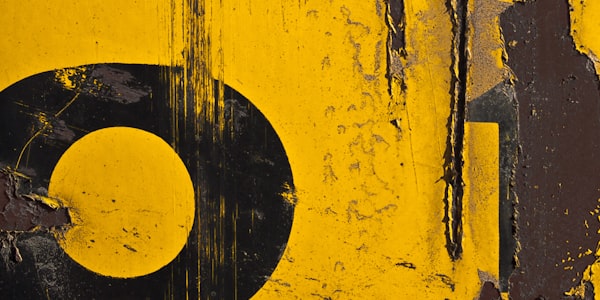It’s now well over 5 years since I complained about the state of SA wine writing. As we all wait on tenter hooks for the unveiling of the Veritas Young Winewriter of the Year and the Du Toitskloof/Standard Bank SA Wine Writer of the Year, it’s sobering to see when I thought things could not get much worse, they promptly did. In spades.
The first quarter of 2008 is not yet over and already it’s shaping up as the worst vintage on record for SA wine writing. Two publications, Winelands Living and Winescape, have run out of ink while WINE magazine advertises for a new publisher. A collapse of advertising due to the economic downturn is one explanation but the bigger reason is declining circulation, which has two drivers.
Rapport reported last month that 850 000 white South Africans emigrated between 1995 and 2005, or around 20% of the white population. Include the “angel’s share” for 2006 and 2007 and it’s likely that more than one quarter of the SA white population are now in exile. For “white” the politically correct can replace “wine drinkers” and the problem faced by publishers becomes clear.
Compounding the problem is the fact that it is the 18-36 year old age cohort that has gone AWOL thanks to Eskom, rising crime, affirmative action employment practices and the seduction of the bright lights of Sydney, Seattle and Surbiton. Potent beacons to those living in the land of load shedding.
Then there’s the internet with online magazines like Slate and First Post plus digital versions of pillars of the publishing establishment like the Guardian and the NY Times fulfilling the wine needs of many. Some of the best wine writing around is blogged and carried on sites like www.andrewjefford.com and you can’t beat the price – it’s for free.
The most recent jottings of Drew I read was an interview with Ridge winemaker Paul Draper included in the pompously titled Questions of Taste: the philosophy of wine edited by Barry Smith (Signal Books, 2007). On the subject of wine writing, Paul makes the point “The last thing wine needs is to be seen as elitist. Wine is food. It brings us together… wine is meant to be drunk not tasted.” He argues strongly against tasting tourneys of dozens of bottles with scores tabulated at the end, a favourite space filler in wine magazines.
For starters, wines need to be looked at in conjunction with food. On the subject of scoring, Paul reckons that Robert Parker “would be better without the points. But he’d have half the number of subscribers.” He insists that wine lovers are moving away from reliance on points and are “learning to trust their own taste more.” They’re increasingly blogging their reactions to wines which Paul sees as “an important check on the power of the wine press.”
SA consumers are probably less advanced than the ones Paul has in mind as is clear from the importance still attached to Platter’s stars which are awarded sighted by a panel of industry insiders. For the rest, existing on advertising support, local wine publications have long been snore city. How many titles gave the in-depth story behind the KWV chairman losing his seat and nearly his composure late last year? Or the seedy background to the long-delayed meltdown of the SA Wine Industries Trust? Or the latest sighting of that new Scarlet Pimpernel of SA wine, Tokyo Sexwale, more discrete than a barrel full of Greta Garbos?
Instead readers are treated to florid descriptions of magnums of Pétrus ’82 quaffed with quail eggs in Michelin starred heaven. The kind of indulgence Will Self could have had in mind in Liver, which deals with aliens “who cultivate human alcoholics to use their livers as a kind of foie gras.” Along with spurious arguments about whether SA whites kick ass as compared to SA reds while producers make like Edvard Munch, screaming mutely about the injustice of sighted tastings from the wrong side of the mountain as WoSA sounds the retreat for exporters from the American market. Never have the issues in SA wine been more acute and the commentary so muted.
While Barak Obama offers the US public “a united front against the common enemy of a corporate culture rife with insider dealing and questionable accounting practices and short term greed… and economic policies that favour the few over the many”, small SA producers still battle to get listings in restaurants and retail stores, double whammy victims of dodgy distribution and big brother producers who buy wine lists wholesale. Who should they vote for?
With the median Johannesburg restaurant corkage charge now R50 a bottle (if you can even find such old fashioned establishments in this fast-paced Gotham of gastronomy written-off by all the Cape-obsessed food guides), the old standby of BYO becomes seriously expensive. Unless you can persuade a sympathetic waitron to overlook the number of screw caps twisted in exchange for a cash corkage “tip” at the end of the meal. Which highlights perhaps the most powerful benefit screw caps hold over cork – stealth.
With Christian Eedes recently returned from honeymoon in exotic Mozambique to the editor’s La-Z-Boy recliner of WINE in Pinelands, the SA wine writing spittoon will be watching with interest for any change of direction, like covering the Soweto Wine Festival in as much depth as VinExpo. Or a black diamond being given a platform to scratch away at the glass ceiling of transformation. And I’m not talking about Tom Waits’s black diamond babies either, those “diamonds that want to stay coal.”




